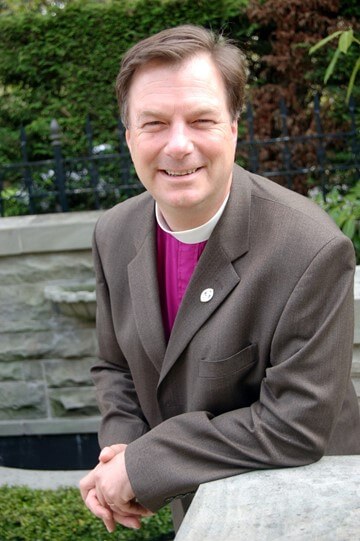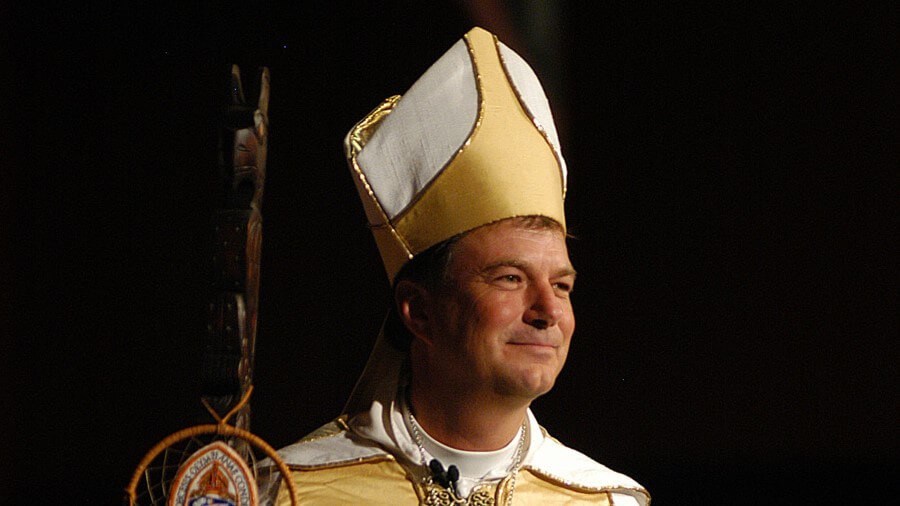Bishop Rickel’s Statement on the Kyle Rittenhouse Verdict
Declaración del Obispo Rickel sobre el veredicto en el caso de Kyle Rittenhouse
Dear Ones,
I was saddened to learn of the verdict today in the trial of Kyle Rittenhouse, the young man who traveled to Kenosha, Wisconsin, last year and fatally shot two people, seriously injuring a third. The incident brought to the surface many of the issues that our country wrestles with—and all-too-often attempts to ignore—around racial justice, white vigilantism, and gun violence. Rittenhouse came to Kenosha, heavily armed, as part of a mob of white men to stop the protests for racial justice and took two lives. Under the auspices of protecting property, he came prepared to commit violent acts and did just that. As the prosecutor stated, there is a difference in defending yourself from violence perpetrated against you, and you creating the situation in order for you to do it—or more specifically, “You lose the right to self-defense when you’re the one who brought the gun, when you are the one creating the danger, when you’re the one provoking other people.”
As the verdict came in today, it has been widely observed that we have two legal systems in this country—one for white men, and one for everyone else. Many have suggested that if Rittenhouse had been Black, the verdict would have been drastically different. I would go further—when you watch the videos of that night, I would say if Rittenhouse had been Black, he most likely would not have come out of that night alive. A young white man brazenly carrying an automatic weapon through city streets was virtually ignored by law enforcement. Had it been a Black man, I do believe the result would be drastically different.
In these same days we are witnessing the trial of the ambush of Ahmaud Arbery, a Black man, in Brunswick, Georgia. And even with all the accused admitting that Arbery was unarmed and ultimately not threatening them, and all evidence pointing to Arbery trying to flee the scene unarmed, this case hangs in this unjust balance as well. In both cases, we see self-appointed vigilante’s taking justice into their own hands. And folks, if it can happen to these folks, it can just as easily happen to any of us.
But, the point is, mostly, it doesn’t. Especially if we are white, if we are privileged, if we have enough money to defend ourselves. We simply must do better, and we must be better.
This comes only one day after a judge in New York “prayed” about the sentencing of a young white man who had pleaded guilty to charges rape, sexual abuse, and sexual harassment and only gave the man probation because he said that prison time “wasn’t appropriate” (Judge ‘Prayed’ About It and Decided That Prison Time for Admitted Rapist of Teen Girls ‘Isn’t Appropriate’).
We know that incarceration rates for Black Americans is five times the rate of white Americans, and for Latin Americans it is 1.3 times higher (The Color of Justice: Racial and Ethnic Disparity in State Prisons). According to the ACLU, women who kill their abusers will spend an average of 15 years in prison, while men who kill their spouses spend two to six years in prison (Women Serve Longer Prison Sentences After Killing Abusers: When men kill the women they’re abusing, statistics say they get out sooner). Men from Indigenous communities are four times more likely to be incarcerated than white men, while Indigenous women are six time more likely (Indigenous Communities and Mass Incarceration).
Justice is supposed to be blind, but time and time again, our justice system has been proven to favor white men. It is severely out of balance.
I pray for all involved in this case, including Kyle Rittenhouse. I pray for all the victims of gun violence. I pray for our country and for our justice system. There is so much that needs to change. Let’s engage and act so that we may see a more just system going forward. To get involved in making our criminal justice system equitable, you can see what steps The Episcopal Church’s Office of Government Relations recommends here: Get Involved with Criminal Justice Reform.
Blessings,
+Greg

Bishop Greg Rickel
The Rt. Rev. Gregory H. Rickel was elected bishop on May 12, 2007, and became the eighth Bishop of Olympia in September 2007. He embraces radical hospitality that welcomes all, no matter where they find themselves on their journey of faith. He envisions a church that is a safe and authentic community in which to explore God’s infinite goodness and grace as revealed in the life and continuing revelation of Jesus Christ.

The Episcopal Diocese of Olympia
The Episcopal Diocese of Olympia traces its history to the establishment of the Missionary Jurisdiction of the Oregon and Washington Territories in 1853. We are also known as the Episcopal Church in Western Washington.
Admitted by General Convention in 1910, the Diocese of Olympia is made up of more than 26,000 Episcopalians in more than 100 worshiping communities through Western Washington. Our geographic area stretches south from Canada to Oregon and west from the foothills of the Cascade Mountains to the Pacific Ocean.
Through worship we do the following:
- Affirm our faith
- Pray together
- Reconcile together
- Share peace and thanksgiving together
- Gain strength and renewal through Eucharist
- Prepare ourselves to minister to the world
We share hope in God’s incredibly extensive grace to forgive all repentant people.
Our congregations cover a whole range of sizes and stages of development. Several affiliated institutions and numerous outreach and social justice ministries as well as a number of multicultural ministries are supported by the whole diocese.
Church of the Redeemer
Church of the Redeemer: Worshiping God, living in community, and reaching out to the world around us. We are an Episcopal Church serving north King County and south Snohomish County, Washington. As you travel your road, go with friends walking the way of Jesus at Redeemer.
Church of the Redeemer is at 6220 Northeast 181st Street in Kenmore, Washington. We are a short distance north of Bothell Way, near the Burke-Gilman Trail. The entrance looks like a gravel driveway. The campus is larger on the inside than it is on the outside. And we managed to hide a large building on the side of a hill that is not easily seen from the street.
The Episcopal Church welcomes you.

